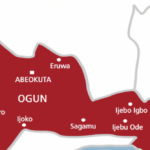
Last week Nigeria joined the rest of the world to mark World Cancer Day. It was an opportunity to remember those who have lost their lives to the disease and review strategies taken to tackle the disease. Currently, 8.2 million people die from cancer worldwide every year, out of which four million people die prematurely (aged 30 to 69 years). World Health Organisation (WHO) data shows that about 70 per cent of cancer deaths occur in developing nations. It said while over 100,000 Nigerians are diagnosed with cancer annually, many of such persons die giving cancer a worrisome survival rate.
According to WHO, Nigeria has had a significant increase in deaths from common cancers in recent years. The World Cancer Report of 2014 also says that due to a number of behavioural and dietary factors which have been the causes of most mortalities, new cancer cases are expected to rise to 22 million globally by the year 2022. Cancer is the uncontrolled growth and spread of cells. It can affect almost any part of the body. The growths often invade surrounding tissues and can metastasize to distant sites. Many cancers can be prevented by avoiding exposure to common risk factors such as tobacco smoke.
Minister of Health Professor Isaac Adewole said significant proportion of cancers can be cured by surgery, radiotherapy or chemotherapy, especially if they are detected early. He also said 80 per cent of cancers are preventable and treatable. With the 2016 theme as ‘We Can, I Can’, the minister stated that “The burden of cancer is growing due to a number of behavioural and dietary risk factors that are most essentially lifestyle-related including sexual practices, increasing oral and anal sex, social habits such as smoking and alcohol, declining fertility rates, sedentary lifestyles and obesity, nutrition and diet.” Sadly, the level of awareness of the disease in the country is still very low. Till date many Nigerians do not really understand what cancer really means, its causes and the impact it has on the individual and society. Many still see it as a disease of the rich, the elderly or even of advanced countries despite the fact that more than 70 per cent of cancer deaths occur in low and middle income countries. So, there is a need for adequate sensitization for people to be fully aware of the dangers of cancer and the need for constant checks. People should also be sensitized on what to do when diagnosed with cancer. Virtually all experts have harped on early detection as a means of tackling the disease. Sadly, many African countries including Nigeria do not have adequate screening centers. The government and non-governmental organisations should work to ensure that such centers are spread across the country and they should be within reach of the common man.
Minister Adewole said the federal government has initiated a planning process that will culminate in the transformation of the National Cancer Control Program into a national agency and that the planned agency which is expected to be named National Agency for Cancer Control will provide leadership and technical direction for cancer control in Nigeria. It is a welcome development that the government plans to give the issue the seriousness it deserves but the problem is not about creating an agency. It should be about putting in practical efforts to ensure early detection and treatment of the disease. People should be encouraged to engage in routine health checks. At the moment, only the rich who can travel abroad for treatment have a chance of survival when diagnosed with cancer, thereby making it a death sentence for the poor. That should not be the case. In view of the cost of treatment, government should formulate a policy that would cover less privileged persons suffering from the disease. Departments for counselling must also be provided to assist people diagnosed to live normal lives while undergoing treatment. Medical experts should intensify research towards finding a cure for the disease, just as non-governmental organisations, donor agencies and governments work together to provide necessary support and direction towards total eradication.




